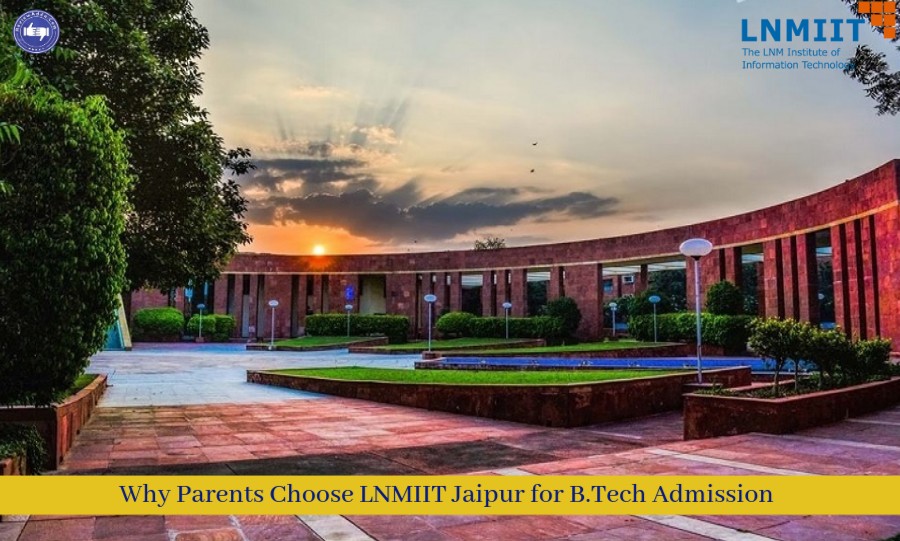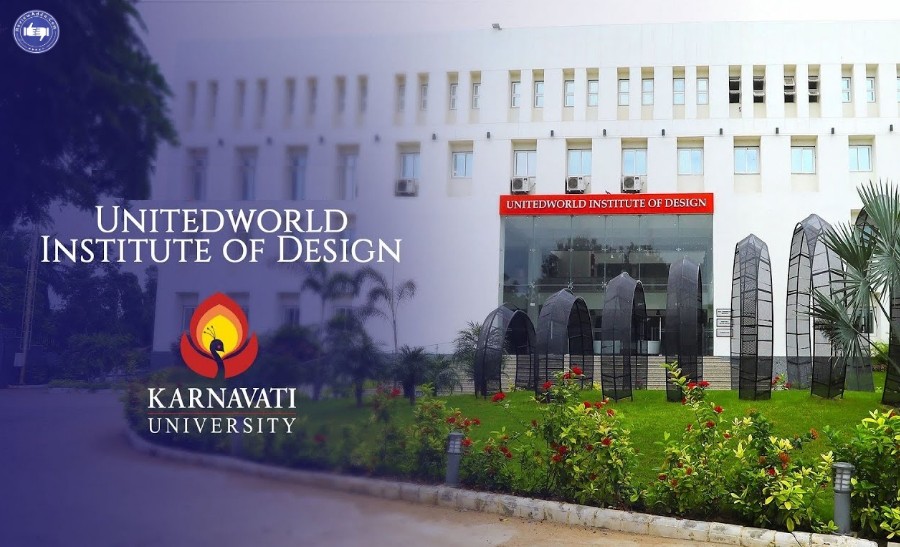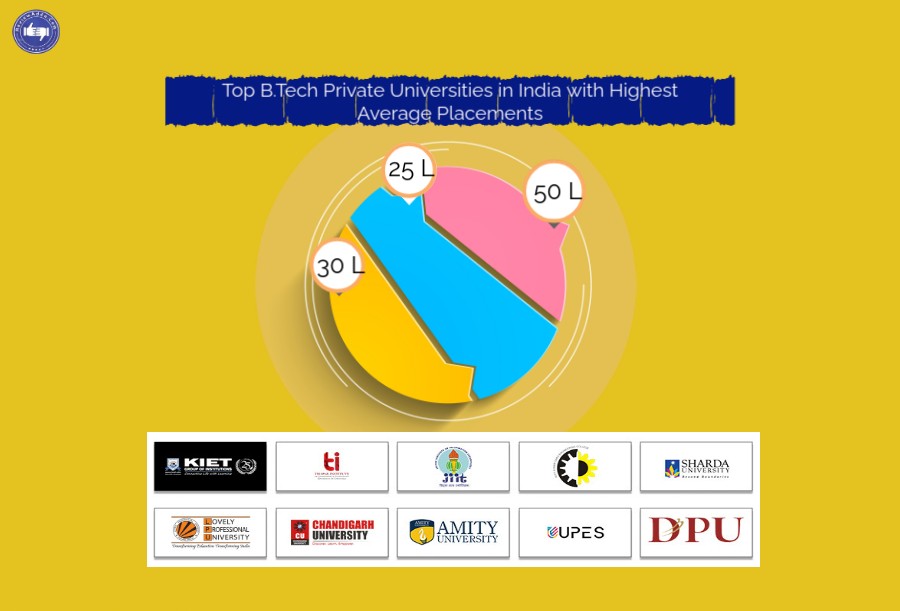10 reasons: Why India is great country for study
India offers both Indian and foreign students a wide range of chances since it is a country with many diverse cultures and the birthplace of some of the largest religious movements and political upheavals in history. Studying in one of the most fascinating countries on earth may first seem overwhelming, but it frequently opens students' minds to new experiences and points of view, providing them with a whole new world to discover.
While living in India might be challenging at times, especially until you get used to the fundamental differences, it can also be an amazing and affordable experience. India is widely recognised for its dynamic customs, densely populated cities, and rapidly expanding economy; yet, regardless of your intended study location in India, you will be treated to a singular experience.
India's leading universities—IITs, IISCs, and AIIMS, among others—are contributing to the nation's rise to the top 24 worldwide in the QS Higher Education System Strength Rankings. India boasts a vast educational system comprised of multiple highly recognised universities, making it one of the greatest places to study.
Thus, continue reading to find out why India is a fantastic destination for students.
10 reasons for choosing to study in India.
- There are many reasons why studying abroad attracts students. Some of them include:
- Studying in a new setting and culture exposes you to difficulties and experiences you may not have encountered previously.
- Indian education is preferred by many international students due to its simple but efficient curriculum.
- You will be able to learn about another country’s language, history, politics, and economics.
- Studying overseas can improve one's employment chances and possibilities.
- It's a chance for you to advance intellectually, investigate new areas of interest, or network with others from diverse academic backgrounds.
Let’s explore the various reasons why studying in India is a great choice!
1. Quality Education Beyond The Classroom
Traditional teaching methods are changing in step with the globe. The days of teaching just taking place in classrooms are long gone. The educational institutions have now broadened their scope to include blended learning approaches, which place equal emphasis on the academic and practical facets of education. The institutions frequently arrange industry visits, alumni meet-ups, and lectures with subject matter experts.
In addition, the educational approach employed by the establishments is designed to foster in pupils a capacity for rational and critical thought. Ultimately, high-quality postsecondary education will prepare foreign students studying in India for the working world.
Some of the quality features students will get in India are-
-
Intake of Cream:In order to attract students for admission, the colleges go on awarding high grades/marks to undeserving candidates. The colleges/university departments admitting students on the basis of career marks get cheated in many situations and thus get poor quality of students.
- Managerial efficiency: Generally, principals are appointed based on seniority and the managerial efficiency is not taken into account. There isn't a formal orientation course offered to recently hired principals. It has an impact on the calibre of schooling since they lack the powerful managerial abilities.
- Well- occupied Classrooms: Lack of adequate number of teachers and classrooms force many colleges to reduce their number of groups and merge them into larger groups making it possible for a teacher to carry out effective classroom interaction.
- Adequate Student Services: Most of the higher education institutions today are capable of providing services like conducting orientation programmes, health services, hostel facilities, guidance and counselling services to the students.
- Adequate material resources: Most of the higher education institutions at present have proper material resources like state of the art building; play ground, good number of classrooms, infrastructure, laboratory with sufficient equipment, toilet facility, and staff rooms.
- Accountability of institutions: Now, most of the Indian institutes are accountable and lead to the premium quality in higher education.
- Efficiency in Teaching: An effective teacher needs to be a lifelong learner and needs to strengthen his knowledge voluntarily. A good institution is known for its teachers. The institution should be supplied with various journals and good library facility which will energize the teachers’ proficiency and competency
- Teaching Methods: The curriculum framework should be such that it should provide new knowledge which is useful to the society and also provide employability opportunities. The teachers should use qualitative teaching learning material and also be aware of the use of multimedia, IT and OHP.
Other factors that need to be improved in order to raise the standard of higher education in India include the motivation of both teachers and students, the environment that is best for the teaching-learning process, the curriculum's irrelevance, which lowers employability, and others.
2. Diversity in Courses Offered
Living in a foreign country can be an experience of a lifetime! You'll get to discover more about this unique culture. You may also find that studying abroad will help you develop your own cultural identity too.
For example, studying in India means learning various languages. Yes! In India, there are far too many languages that, if learned, may lead to both professional and social prospects.
In India, variety is seen not only in the languages, customs, cuisine, and festivals but also in the field of education. Indian universities provide a wide range of degrees, from STEM (engineering and technology) to non-STEM (commerce, nursing, business management, humanities, arts, and optometry). The extensive course selection is ideal for meeting the diverse interests of foreign students.
Here is the list of some of the top colleges of engineering, medical sciences, and management in India as follows:
Top B.Tech Colleges in India
Top Medical colleges in India
Top Management Colleges in India
3. Go-Global in India
India is the birthplace of several discoveries and technologies that have been embraced globally. Among these are games like chess and ludo, construction and architecture like stepwells and plumbing, and metallurgy like stoneware and diamond drills. Textile & Material Production (Jamdani, button), Science & Technology (fibre optics, Mysorean rockets), Metrology (incense clock, crescograph), etc. Furthermore, it was in India that the practises of yoga and meditation originated.
As a result, foreign students visiting India would be exposed to the time-tested, standardised higher education system.
Courses that are popular among International students
-
B.Tech: A field grounded in science, this practical knowledge-oriented degree is offered in multiple fields including IT, mechanics, chemical, aeronautics, biotech, civil and electronics, to name a few. In India, almost 1.5 million engineers are graduated each year. Each school has a different admissions procedure for overseas students. Applying directly to the college or through DASA (Direct Admission of Students) are the two alternatives available to students.
- Bachelor of Business Administration: This course is extremely popular among undergraduates. A 3-year program, it delves into the depths of business management and can be followed up by an MBA. There are around 45 specializations offered in India under the umbrella of BBA. These include: HR, Marketing, finance, hospitality, banking and insurance etc.
- Bachelor of Commerce: A 3-year undergraduate program, it consists of majors like commerce and finance and a range of elective subjects you can choose from. The variety of employment choices that are accessible to B.Com. graduates makes it a popular degree among Indian and international students. One can go on to enter the fields of commerce, accounting, finance, banking or insurance. As an alternative, you can choose a career in teaching, management, advertising, law, chartered accounting, etc.
-
Bachelor of Pharmacology: Biomedical science is a field that is not only in significant demand, but much needed given the current times. The B.Pharm programme is a four-year undergraduate course of study that delves deeply into the effects and interactions of pharmacological molecules with the body. A skilled pharmacologist may find employment as a clinical research associate, analytical chemist, research scientist, biomedical scientist, or clinical pharmacologist.
- Bachelor of Computer Applications: Similar to a B.E. or B.Tech in computer engineering, a BCA is a popular choice. You may get a head start in the highly sought-after information technology business with this three-year degree.
- Bachelor of Science: A distinguished B.Sc. in mathematics, physics, biology, computer science, etc. prepares you for an academic track. It is the perfect program for students looking to dive deep into the pure sciences as well as students that wish to pursue careers in applied sciences and find employment in various multi- and inter-disciplinary spheres of science. Numerous exceptional institutions in India provide top-notch BCA, B.Sc., and B.Com. courses.
- Bachelor of Arts: Studying the arts includes a close look at the humanities and social sciences. International students can pursue undergraduate, graduate, and doctorate degrees in the arts in India.
- Medicine/M.B.B.S.: Indian medical institutes provide affordable, top-notch education. As compared to USA, where a medical degree costs about 25,000USD, in India, the same program costs about 1000USD. Another reason why international students are increasingly choosing to study medicine here is the opportunity for hands-on experience with the multitude and variety of patients in the college hospitals.
- Bachelor of Dental Studies: Similar to MBBS, the 5-year BDS program attracts students from around the world including foreign nationals as well as NRIs. Dentistry is a popular course among international students due to the cost of these universities, the good curriculum that is updated frequently to stay current, and the opportunity to practise a wide range of situations. Also, the programme is far shorter in India than it is in the USA, Canada, and other nations, and graduates may become dentists much earlier in life, providing them a competitive advantage.
- Nursing: India is the world's second-largest nurse producing nation, after the United States. With its cutting-edge facilities, knowledgeable professors, and many opportunities for practical experience, the nursing programme is growing more and more popular with international students.
4. Holistic and Explorative Learning
India's higher education system does not follow a set curriculum; instead, it emphasises 360-degree learning. This includes instruction provided in classrooms, extracurricular events including yearly festivals, intercollegiate tournaments or events, and student-organized city and history walks. The foreign students benefit from all these interesting extracurriculars by having a well-rounded experience that extends beyond the classroom and literature. In the end, it facilitates growth on the personal and intellectual fronts.
-
Additionally, the National Education Policy 2020 has stressed the value of developing soft skills like resilience, communication, collaboration, and teamwork, as well as holistic learning methodologies.
- One such technique is activity-based learning (ABL), which creates a more dynamic and interesting learning environment by allowing students to explore, experiment, and learn on their own through supervised activities. By fostering students' natural curiosity, this method seeks to improve comprehension and develop critical thinking skills.
- Institutions in India also host events, seminars, exhibitions, and workshops throughout the year to nurture students' explorative spirit and encourage them to discover interesting facts and pursue their passions
- Architectural design in some Indian schools, such as the Vedanya School in Gurugram, is also focused on creating interactive and playful spaces that enable uninhibited learning experiences, fostering students' explorative nature and holistic development
- These initiatives collectively reflect a growing recognition of the importance of holistic and explorative learning in India's education system.
5. English, A Primary Language
The English language is widely utilised as a global communication medium in the professional sector. People come from a variety of backgrounds, therefore it's necessary to have a common language for communication, and English serves this function well. To put it briefly, fluency in the English language is required, particularly for students. The fact that English is the major medium of instruction at Indian institutions is one of their most notable characteristics, since it helps overseas students improve their English language skills.
6. Avail Affordable Education
Higher education in India is well-known for its affordability as an extra benefit for students, in addition to its excellent level of instruction. Numerous Indian universities provide price reductions (in the form of Partner Institute Scholarships), which lowers the cost of high-quality education. Therefore, individuals who want to study abroad but are afraid to take the initial step because of financial constraints can visit India and acquire excellent education at costs that are affordable for them.
The low cost of living and inexpensive tuition in India as compared to other study abroad locations is another significant advantage of studying there.
When comparing pricing, for instance, between India and the United Arab Emirates, you will discover that consumer prices in India are 164 percent lower.
Of course, the location of your studies in India will also have an impact on the price. For instance, rent in Chennai is almost 11% less than in Dehli, while consumer costs are about 8% less in Chennai, according Numbeo.
Some of the best and affordable cities in India for higher education include:
-
Pune: Known for its esteemed educational institutions, Pune offers affordable education across various disciplines
- Hyderabad: This city is also known for providing affordable education and is home to a number of well-regarded educational institutions
- Chennai: Another city known for its quality education at an affordable cost, Chennai attracts students from different parts of the country
- Indore: Recognized as a center of education and learning, Indore is considered one of the best cities for higher education in India and offers affordable education
- Thiruvananthapuram: Known for its low cost of living and educational opportunities, Thiruvananthapuram is considered one of the most affordable cities for higher education in India
These cities offer a combination of affordable education, reasonable cost of living, and good educational opportunities, making them attractive options for students seeking quality education at a reasonable cost.
7. Thrive in a Multicultural Society
India is a vibrant nation that has been compared as a melting pot of many civilizations. International students are exposed to a diverse community and are given once-in-a-lifetime experiences. Students may feed their interest for fully experiencing new things by studying in such a diversified nation, which is one of the finest things about it. Since the institute's students come from a variety of backgrounds, foreign students have the opportunity to learn about other cultures, languages, cuisines, and festivals in addition to their regular academic studies.
India is immensely varied, home to over a billion people who practise a wide range of cultures, languages, and faiths. This makes learning about a new culture while studying abroad in India an excellent option.
This does not, however, imply lowering the calibre of your education. After China and the United States, India has the third biggest publicly supported higher education system globally. In the last ten years, the Indian higher education system has grown significantly, and its standards now resemble those of western universities.
The Sathyabama Institute of Science and Technology provides 25 master's and 49 bachelor's degree courses. Its programmes are taught by subject-matter experts and have connections to the industry. The institution's highly advanced research centres are utilised to support research-led education, which will be experienced by students.
8. An Active Global Alumni Network
India is the birthplace of creative solutions and ideas. A thriving education system is demonstrated by the burgeoning start-up environment, technical developments, and inventions.
Numerous gifted individuals who currently head multinational corporations were nurtured by Indian institutions. For example, Ajit Jain, vice chairman of Berkshire Hathaway, Shantanu Narayen, CEO of Adobe Systems, Anirudh Devgan, president of Cadence Design, Rajeev Suri, CEO of Nokia, and Jayshree Ullal, president and CEO of Arista Network. As a result, Indian higher education enables students to advance in their chosen fields of study and gain new skills.
9. Economical Lifestyle
Aside from their education, overseas students studying in India are exposed to a variety of activities. They have lots of places to go, things to do, and events to enjoy. Because there is so much variety available, the lifestyle is both exciting and affordable. International students visiting India may enjoy delicious street cuisine, buy at wholesale markets, take advantage of cheap local transportation (buses, metro, etc.), and save time.
10. Student-Friendly and Easy Procedures
Every student hoping to pursue higher education abroad hopes for a trouble-free experience. Indian educational institutions handle admissions in a way that makes it easy for students to choose the best course or college for them. What makes studying in India a good option for students worldwide is the simple and student-friendly application process.
Conclusion
The best Indian institutions are generally characterized by relatively strong scores for teaching environment and industry income but tend to perform poorly when it comes to international outlook compared with international counterparts. To overcome this and gain an upper hand, it’s best to co-develop the necessary skills in your respective field of study and pick the best universities to gain a competitive advantage.




.jpg)
